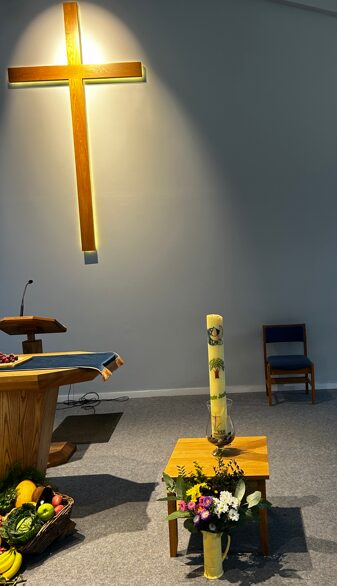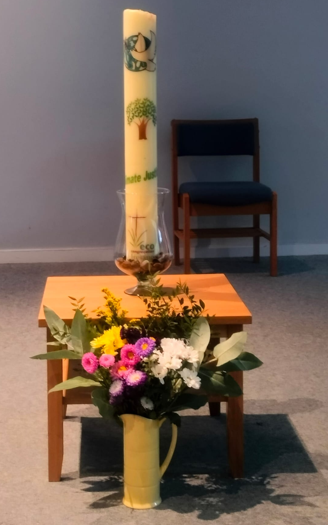
Helen Shiel Sent us this report:
Dundrum Methodist Church, south Dublin, was delighted to host the Climate Justice Candle for a two-week period at the end of September/early October.
In advance of its arrival, several church-based organisations were invited to find ways to incorporate it into their programme for September. The invitation was also extended to Wesley College, with whom we have close ties and whose boarders worship with us on Sundays.
The Sunday School and discussion group leaders engaged enthusiastically as did the Prayer Coordinator and the Wesley College chaplain, not to mention our minister, the Rev Stephen Taylor.
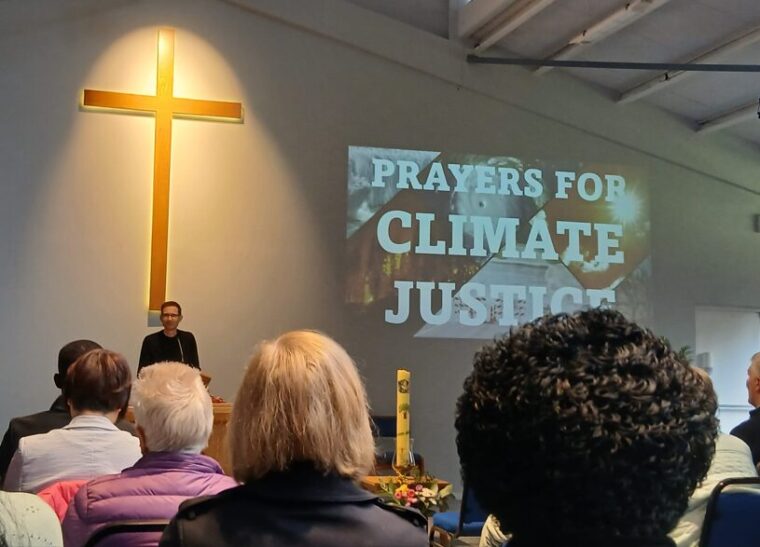
The younger children’s artwork was displayed on the walls of the prayer room – as were some pictures and prayers from Christian Aid worship materials and these were the focus of the monthly prayer meeting.
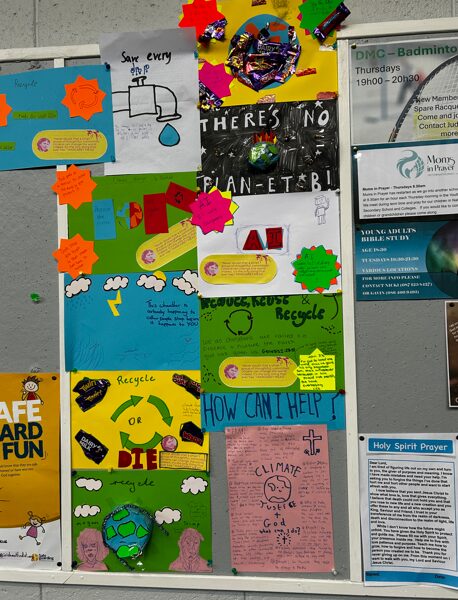
The older children’s work was on display in the concourse, where the candle resided during the week – so that the many users of the building had the opportunity to reflect on the urgent matter of climate change and the invitation to consider what eco justice represents.
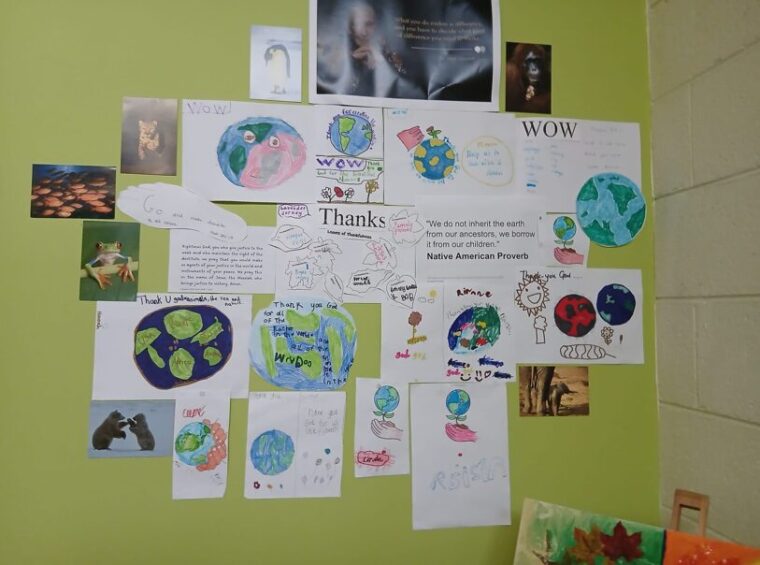
The Wesley College chaplain, the Rev Ruth Mathews, devoted two school assemblies to the theme. She was joined by the Green school committee and said “the school was delighted to be able to share this ecumenical symbol to highlight we’re all in this together”.
The candle was the focus of the services on both Sundays, the first being our Harvest. Introducing the prayers that day, Ashley Progers (one of the eco team) outlined the grave impact of climate change and how it is the most vulnerable countries and people who suffer most yet who have done least to cause the problem.
Drawing from the second creation story in Genesis, ch 2 and the parable of the Good Samaritan, the Rev Stephen Taylor reminded us that the word for “to Till” or to care for the earth was the same Hebrew word used to describe the work of the priests in the temple: in other words serving and caring for the earth and our neighbour is a form of ministry, the outworking of which is Biblical imperative. Holding up a Rubik’s cube, Stephen demonstrated how moving one side of the cube directly affected the other side – likewise, our actions can hugely affect places and people across the globe.
The emphasis of the following week’s sermon was based on the many calls for justice within the Bible – as found in the books of Amos and Micah, and we were reminded that acceptable worship should be an authentic representation of our love for God and that love for God is expressed in our genuine love and care for our neighbour. Stephen concluded with a saying he had seen on a poster many years before, ” the worship has ended, let the service begin”.
Having the candle for the two weeks was a visible reminder of Micah’s call to “act justly and to love mercy and to walk humbly with your God” and we trust that its impact will be long-lasting.
